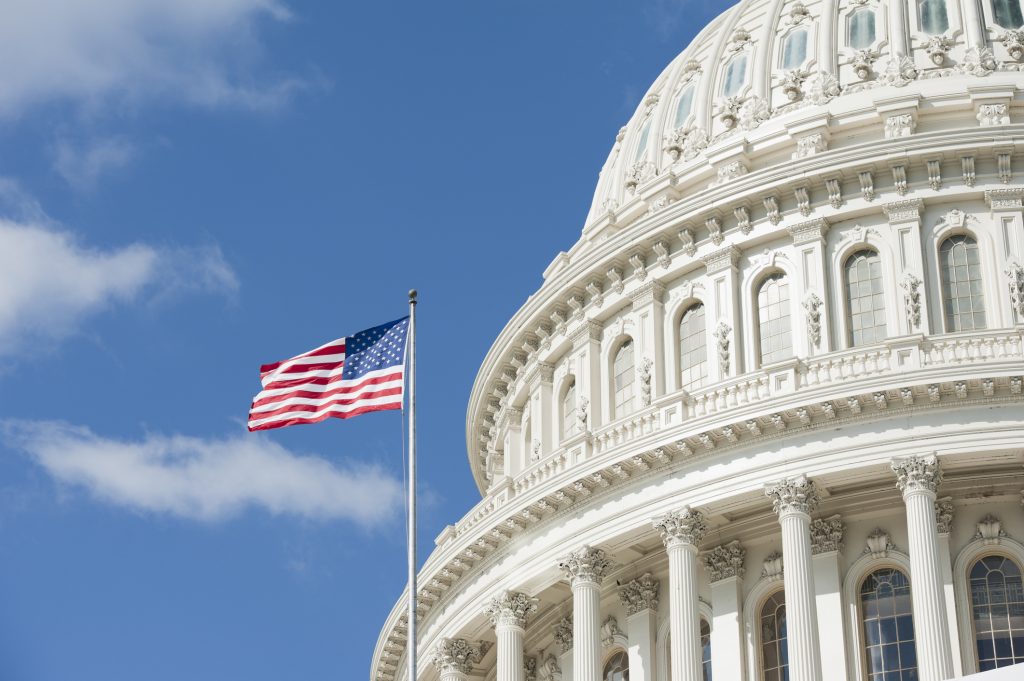Congress and the Administration have been working to develop and pass a series of bills to curb the spread of the coronavirus (COVID-19) nationally and to mitigate its effect on the U.S. economy. The first emergency appropriations bill was enacted on March 6th and provides $8.3 billion in funding for vaccine development and medical equipment stockpiles. Immediately following enactment of that legislation, congressional leaders and administration officials began working on a second broader legislative package that the House passed on Monday, March 16, and the Senate adopted today, March 18, by a vote of 90 to 8.
This legislation, also known as the “Phase 2” funding package guarantees free coronavirus testing; establishes paid sick and family leave at business that have fewer than 500 employees; enhances unemployment insurance; expands food security funding and flexibilities; and increases Medicare and Medicaid funding for COVID-19 diagnostic testing. Below is a summary of the bill’s main provisions.
Paid Sick Leave:
A 100% refundable tax credit is provided for businesses with fewer than 500 employees to provide paid sick leave to employees affected by COVID-19. Note:
- Not available to workers who can telecommute;
- Full-time employees can receive up to 80 hours of paid sick leave;
- Sick leave pay is based on regular compensation but is capped at $511 per day and $5,110 in the aggregate for employees who are quarantined or are experiencing COVID-19 symptoms and are awaiting medical diagnosis;
- For employees using sick leave to care for someone in quarantine (e.g., a child due to school/care facility closing, or who exhibits symptoms), sick leave is 2/3rds of regular compensation and the wage cap is $200 per day and $2,000 in aggregate.
Small businesses with fewer than 50 employees can be exempted by the Department of Labor due to financial hardship.
Paid Family Leave:
A refundable tax credit is provided for businesses with fewer than 500 employees to provide family leave to certain employees affected by COVID-19. Note:
- Not available to workers who can telecommute;
- Limited to employees caring for a child if the school or place of care has been closed, or the childcare provider is unavailable due to COVID-19 precautions.
- Leave pay is to be not less than 2/3rds of regular pay, and pay is capped at $200 per day and $10,000 in the aggregate. Limited to 12 weeks.
- Small businesses with fewer than 50 employees can be exempted by the Department of Labor due to financial hardship.
Domestic Nutrition Assistance Bolstered by Over $1 Billion:
- 500 million for the Special Supplemental Nutrition Program for Women Infants and Children (WIC), $400 million to assist local food banks to meet increased demand for low-income Americans during the emergency through The Emergency Food Assistance Program (TEFAP), and $250 million for the Senior Nutrition program in the Administration for Community Living (ACL).
- Allows USDA to approve state waiver requests
that would result in increased costs to the federal government due to COVID-19
closures.
Allows all child and adult care centers to operate as non-congregate (i.e. allows them to take food to go). - Allows the Secretary of Agriculture to waive meal pattern requirements in child nutrition programs if there is a disruption to the food supply as a result of the COVID-19 emergency.
- Provides the Secretary of Agriculture the authority to issue nationwide school meal waivers during the COVID-19 emergency, which will eliminate paperwork for states and help more schools quickly adopt and utilize flexibilities.
Emergency Unemployment Insurance (UI):
- Among other provisions, the bill provides 100% federal funding for an additional 26 weeks on top of the normal 26 weeks of unemployment insurance for states that experience at least a 10% increase in unemployment. Those states would also be provided funding to ease eligibility requirements that are limiting UI access during the COVID-10 outbreak such as work search requirements.
Congressional leaders and the White House are already working on a “Phase 3” emergency coronavirus response bill that will likely cost hundreds of billions of dollars. Treasury Secretary Steven Mnuchin, the administration’s point person in the negotiations, has stated that in the Phase 3 package, “we’ll be looking for support for small and medium-sized businesses, we’ll be looking for support for certain industries that we’ve talked about that are particularly hard hit. I’ve talked about airlines, hotels, others. And we will be looking at a general stimulus.” In addition, Senate Finance Chairman Grassley continues to push the Administration to include tariff relief in the coronavirus response efforts to aid struggling businesses although administration officials are so far resisting this proposal.
For regular updates on COVID-19 from IDFA, please visit www.idfa.org/coronavirus.


